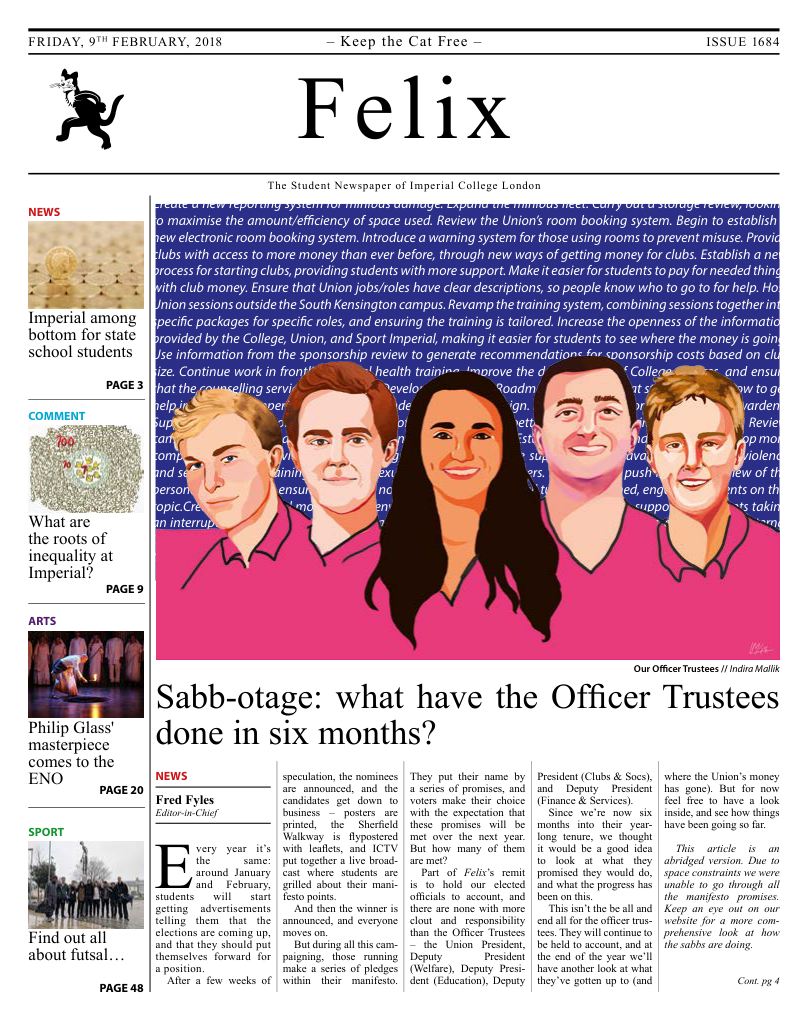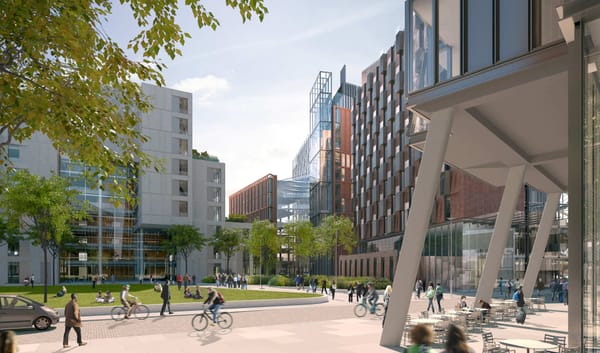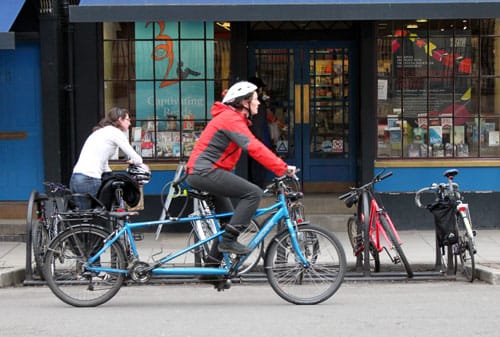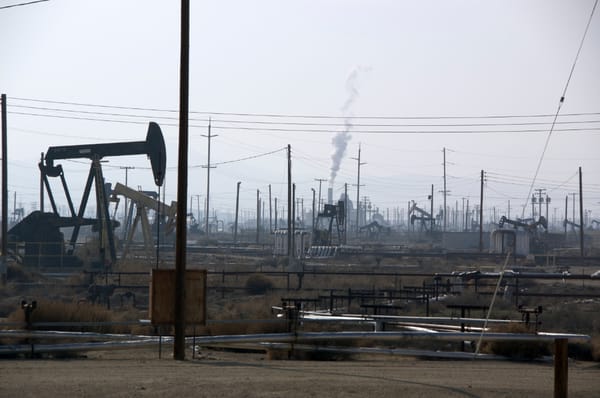Should we think more about our consumption habits?
One writer delves deep into the broad ethical implications of living in a hyper-consumerist society.

When I am shopping I can feel different parts of my brain whirring away. The parts I use for systematic problem solving take a break and instead it is a desperate rush to find the most sticker-coated, cheapest and most appealing supplies for the week ahead. It is impossible, it seems, to truly understand what it took to create the fruits of modern agriculture and technology lined up alongside their identical siblings. How were they made? Where were they made?
This is something which goes undiscussed when we talk about shopping. We talk about shopping very much on a personal level – “I like your new trainers”, or “I found a bloody bargain” – but we don’t discuss the value of how things are made or the implications on a societal level. This article serves as a personal confession and a challenge to all of you out there who also silently turn over similar thoughts.
Let me set the scene. Just like millions of other people, here I am on Tuesday evening foraging along white-painted shelves in an LED-dappled cornucopia of abundance. Items sitting above paper labels yell out to our primate brains their low prices or multi-pack offers – and only as an after-thought, mention the fact it may have travelled half the globe to get here. The question nags me – what impact do I have on the environment and the people where these products are made – people and places with whom my only interaction may be my selection of some exotic ‘superfood’ or yellow-stickered ready meal that are the fruits of their labours, and to whose troubles I give little thought? What gives me the right to make choices about which things are made? What gives any of us this ability, other than the privilege of sitting at the top of the planetary food chain?
These questions are not easy to answer and may take a backseat when in the midst of a shopping frenzy. It is however precisely these irrational decision-making processes which collectively cause many of the problems we face as a species – from inequality to environmental damage.
For instance, when choosing stuff do we bother to read the ingredients on the back of the packet? You might be surprised, like me, to find that your lunch has a more fantastic origin than you might expect. Consider the simplest sandwich you can get in Library café – a BLT or cheddar ploughman’s. That sandwich contains palm oil which reaches you now thanks to enormously sophisticated supply routes spanning the globe. Moreover, you may ask, why are there packs of blueberries in bloody January? And… when are tomatoes for that mozzarella panini in season exactly?
I do not worry that such and such ingredients being in my bread means companies are conspiring to poison us, or that foreign migrants are infringing upon the plastic thrones of blue-blooded British blueberries in their seasonal absence.
I do worry that it is only in recent history that highly energy-intensive processes, such as international transportation and manufacturing, have become intrinsic to every part of our lives since our discovery of fossil fuels. It is not a sound plan for our future to increase the energy intensity of the way we sustain ourselves. Renewable energies simply will not be able to support exponential growth like fossil fuels were able to in the past century and a half. Former-banker turned environmentalist Nate Hagens remarks that our contemporary economy is predominantly “a measure of how fast we can burn through fossil capital and convert it into immediate neurotransmitter responses”.
My second concern is that this level of consumption is not something enjoyed by everyone partaking in our society’s food web. Just last week, Oxfam published a report estimating that 82% of the wealth generated worldwide last year went to the wealthiest 1%. The poorest 50% saw no increase. Is it possible our global food chain actually depends on exploitation?
“We have many choices in what we purchase and hence a power to decide what is created, by whom, and by what means” This being said, I believe with our bonanza of energy unlocked by our discovery of coal and oil, and our intelligence, we have achieved a great deal, such as providing people with more time, a higher level of societal organisation and truly remarkable scientific and cultural achievements.
So what can we do to save this? Firstly, we have many choices in what we purchase and hence a power to decide what is created, who it is created by, and by what means.
Money is a token which gives one a way, though not the only way, to express our values – what we care about. Let me be clear – spending more of it is not going to make your choice more ethical. Nor is going for the things which are perceived by others, or by the claims on the label, to be better. However, we do have needs, and one of our achievements as a species is to develop this remarkably successful tool for fulfilling them.
Secondly, we need to learn habits to help us make the best decisions we can in the shop, just as we have learnt to switch lights off when we leave a room. For instance, reducing meat consumption is a simple way of hugely reducing environmental impact. The New Scientist reports this week that a medium-meat diet of 50g-100g per day produces 2600 kg of CO2 in a year – the equivalent emissions of four return flights to Majorca. For measure, a typical ham sandwich bears about 40g of pig.
Thirdly, at the same time as our environmental footprint has worsened, we have been equipped with the tools to make more informed decisions when it matters. Today, many of us carry smartphones everywhere we go. The smartphone brought us Fruit Ninja, but it could also let us look up how much energy it takes to fly real fruit from the other side of the globe and slash our real environmental footprint. But while I have often overheard people in shops say “turns out it’s cheaper on Amazon”, I have never overheard someone say “apples aren’t in season at the moment”, or “turns out this brand has better working conditions than that one”.
As individuals we should use our choices and technology to make better, more democratic, mindful decisions about what we want and truly need, rather than just taking what is on offer.









